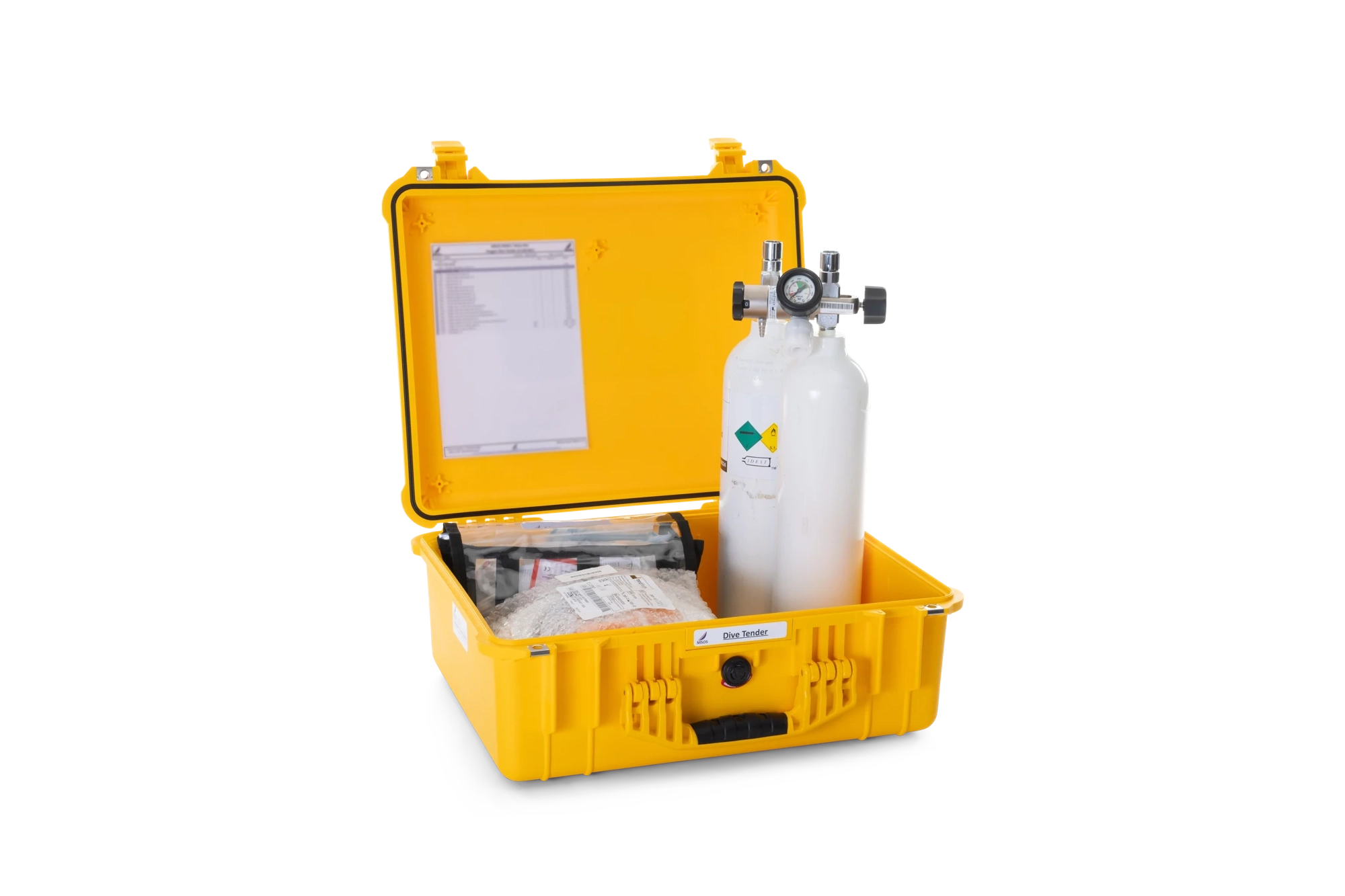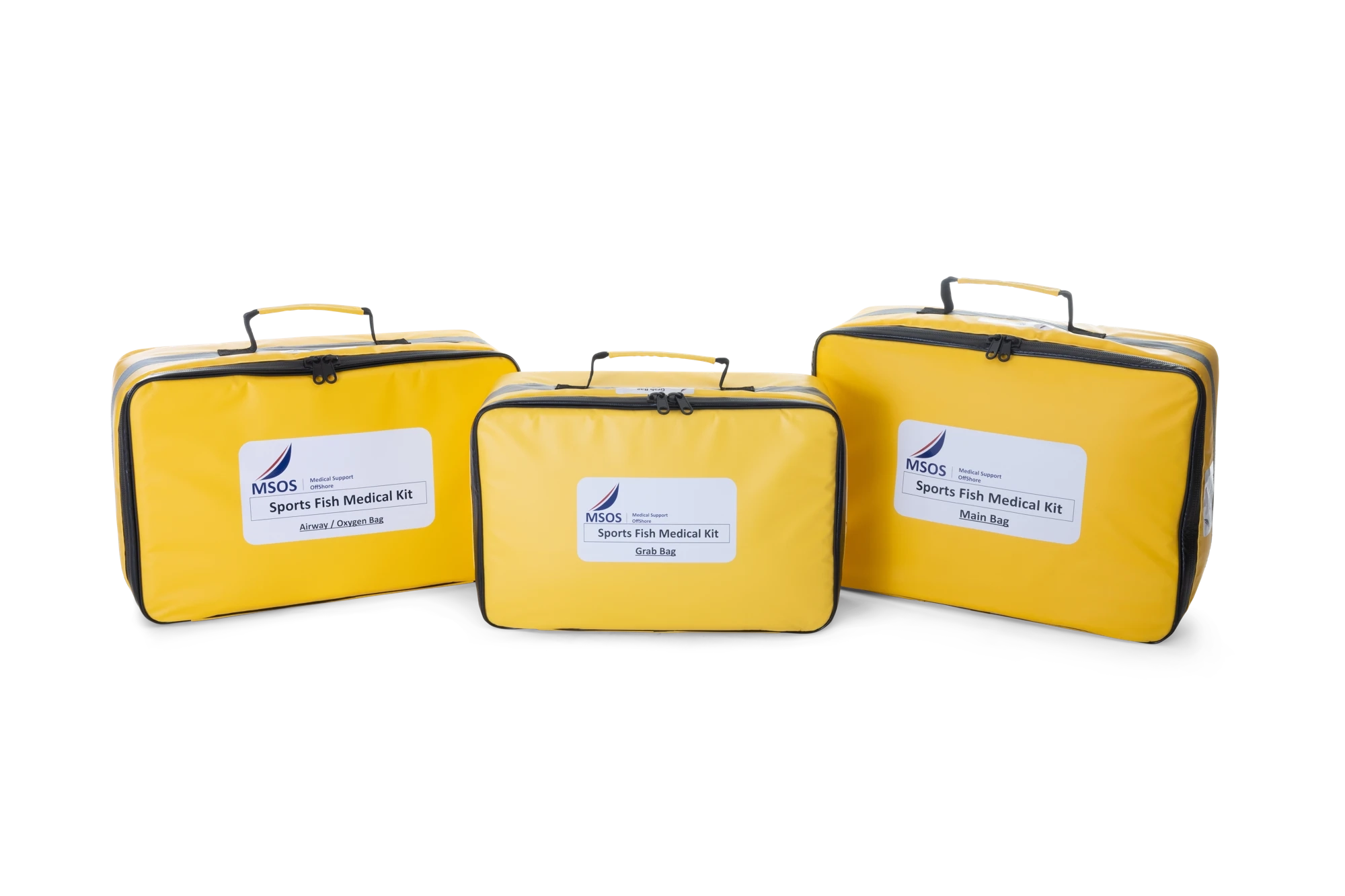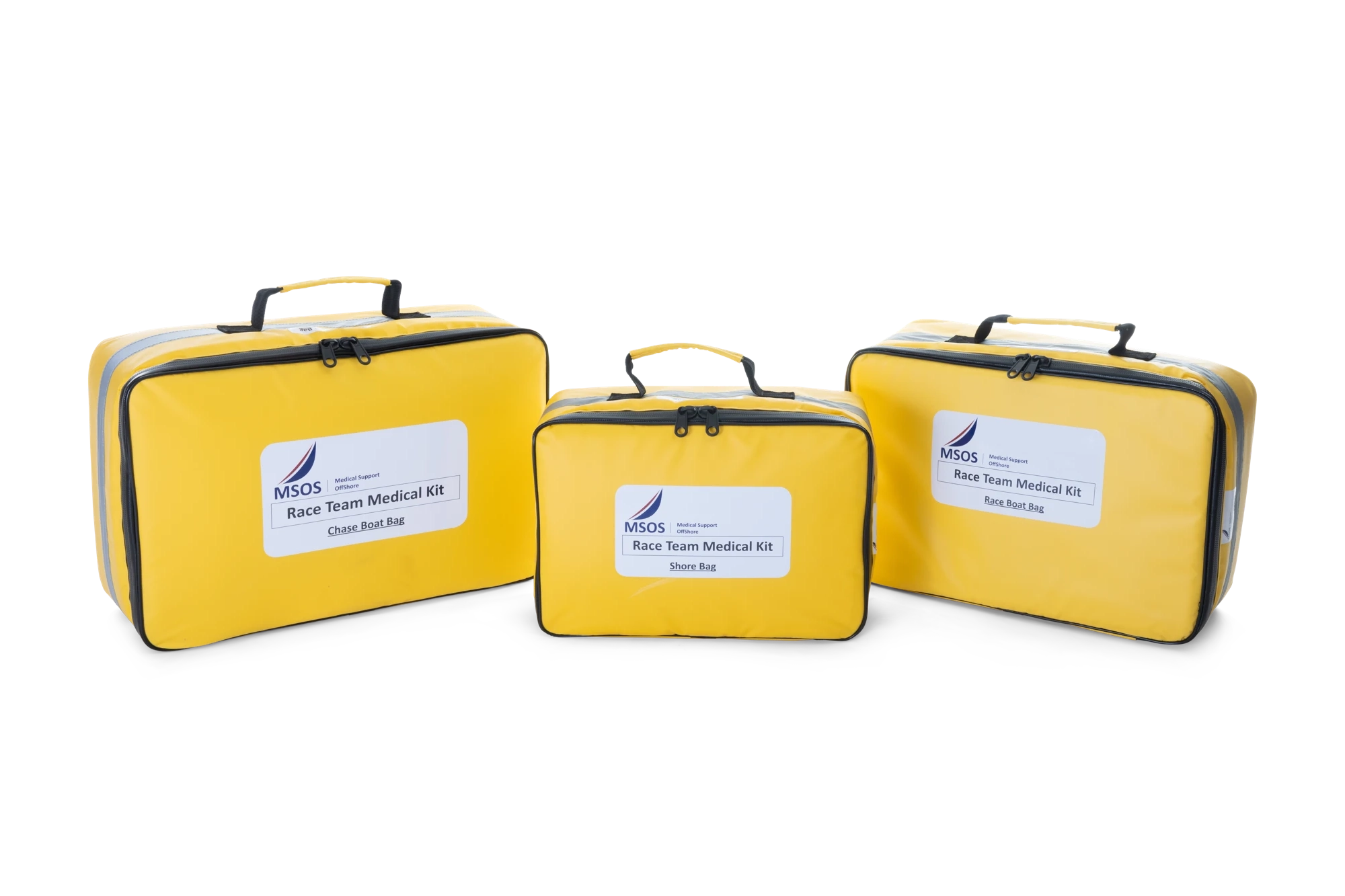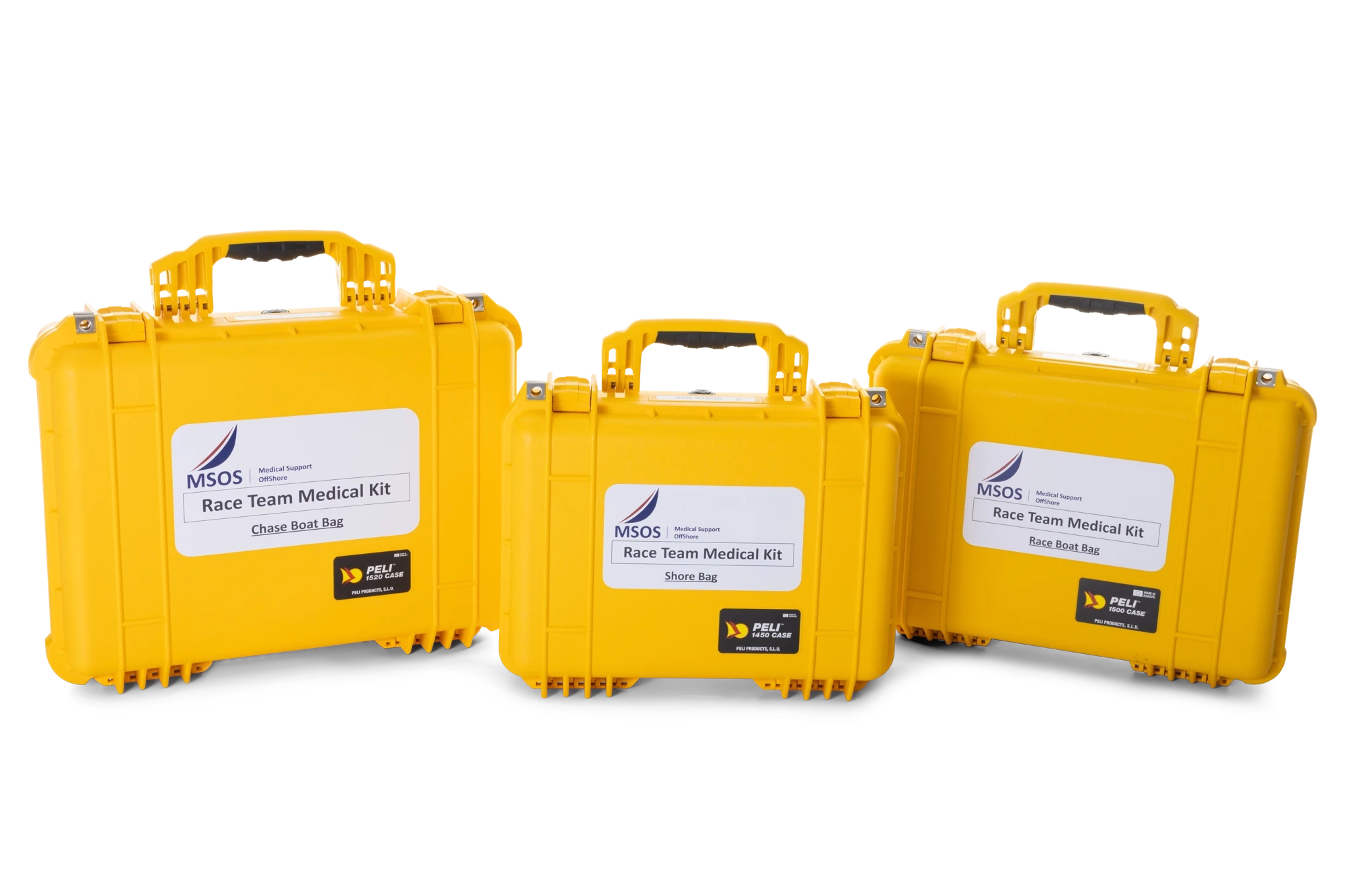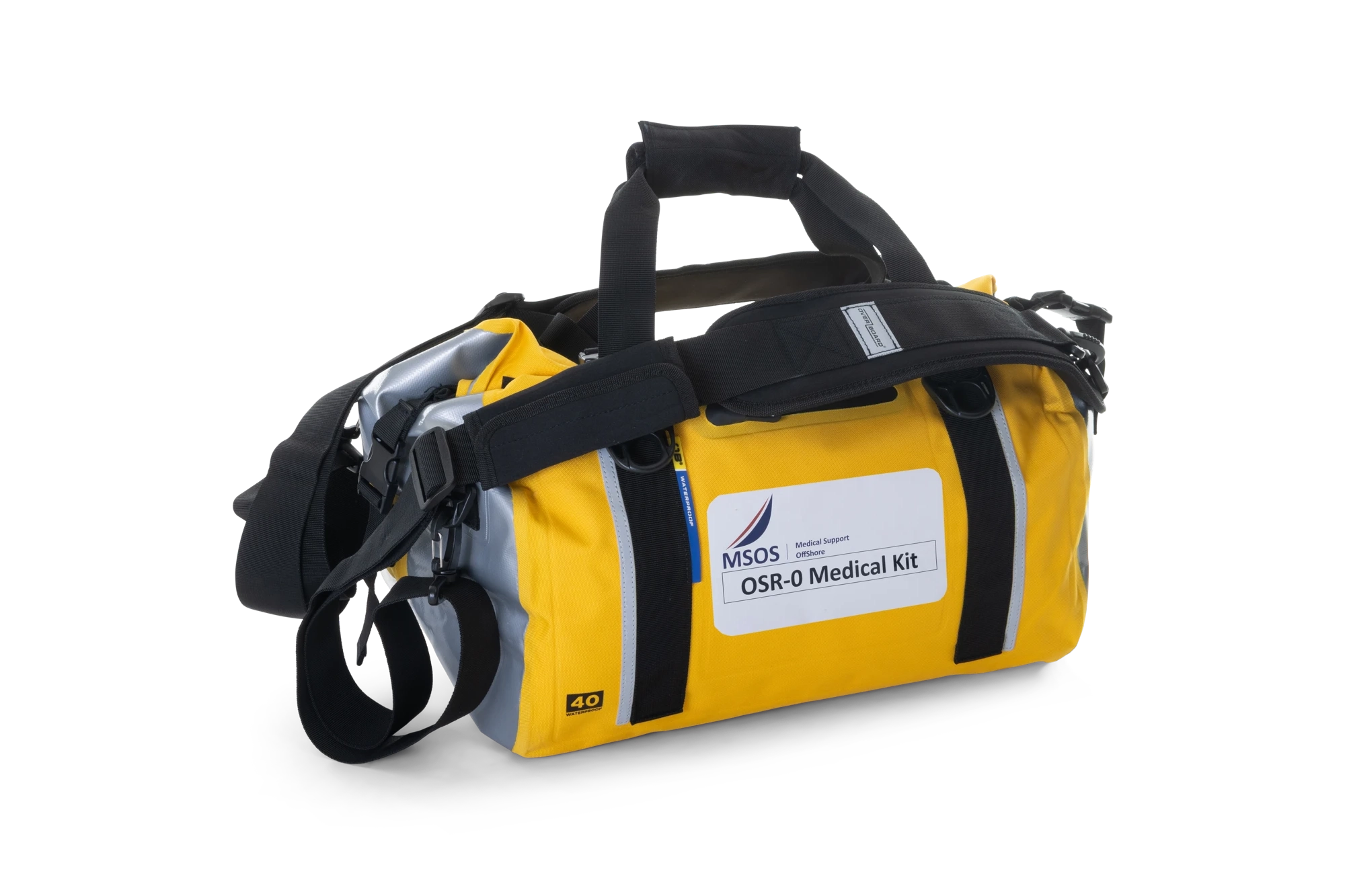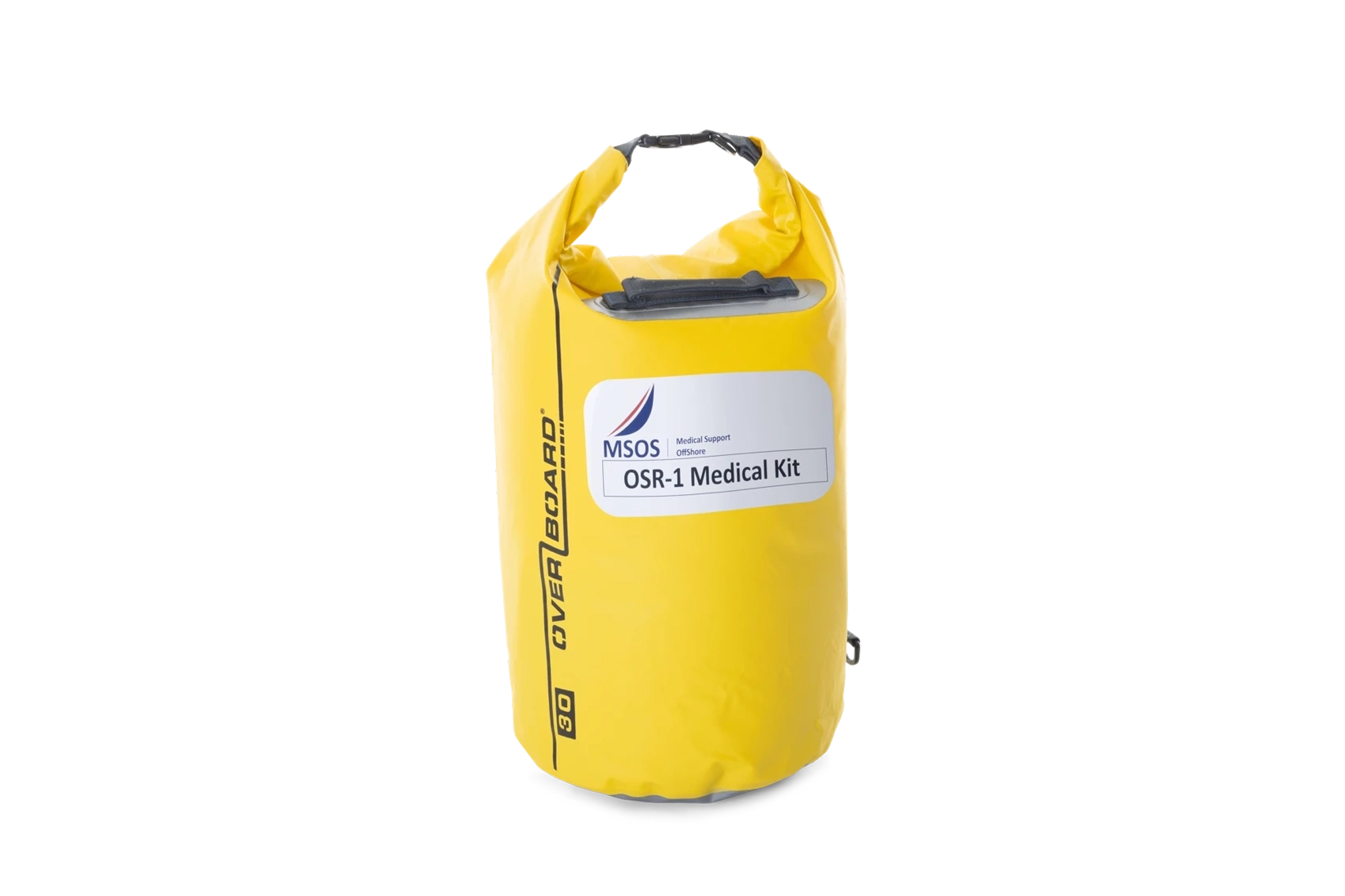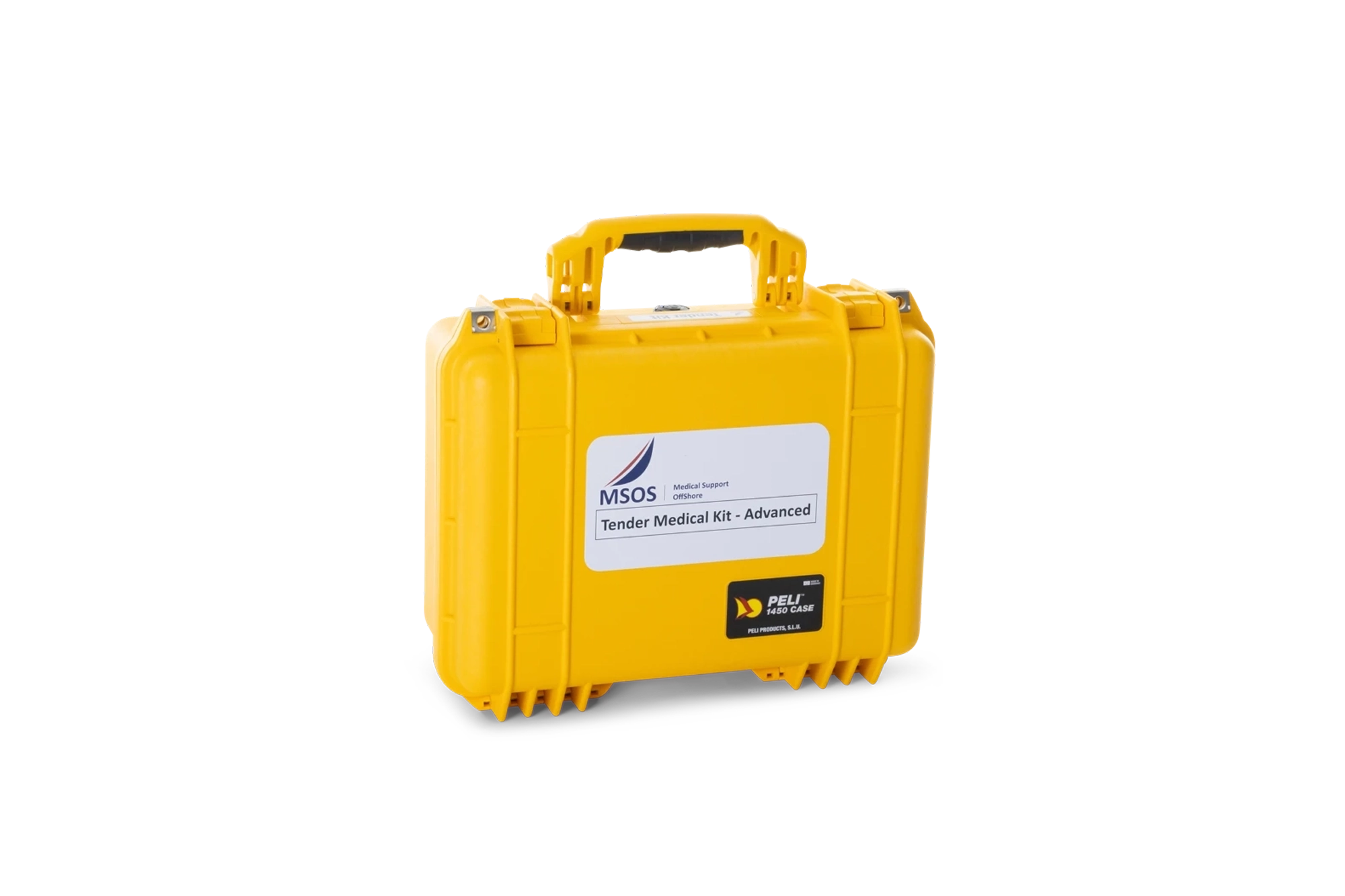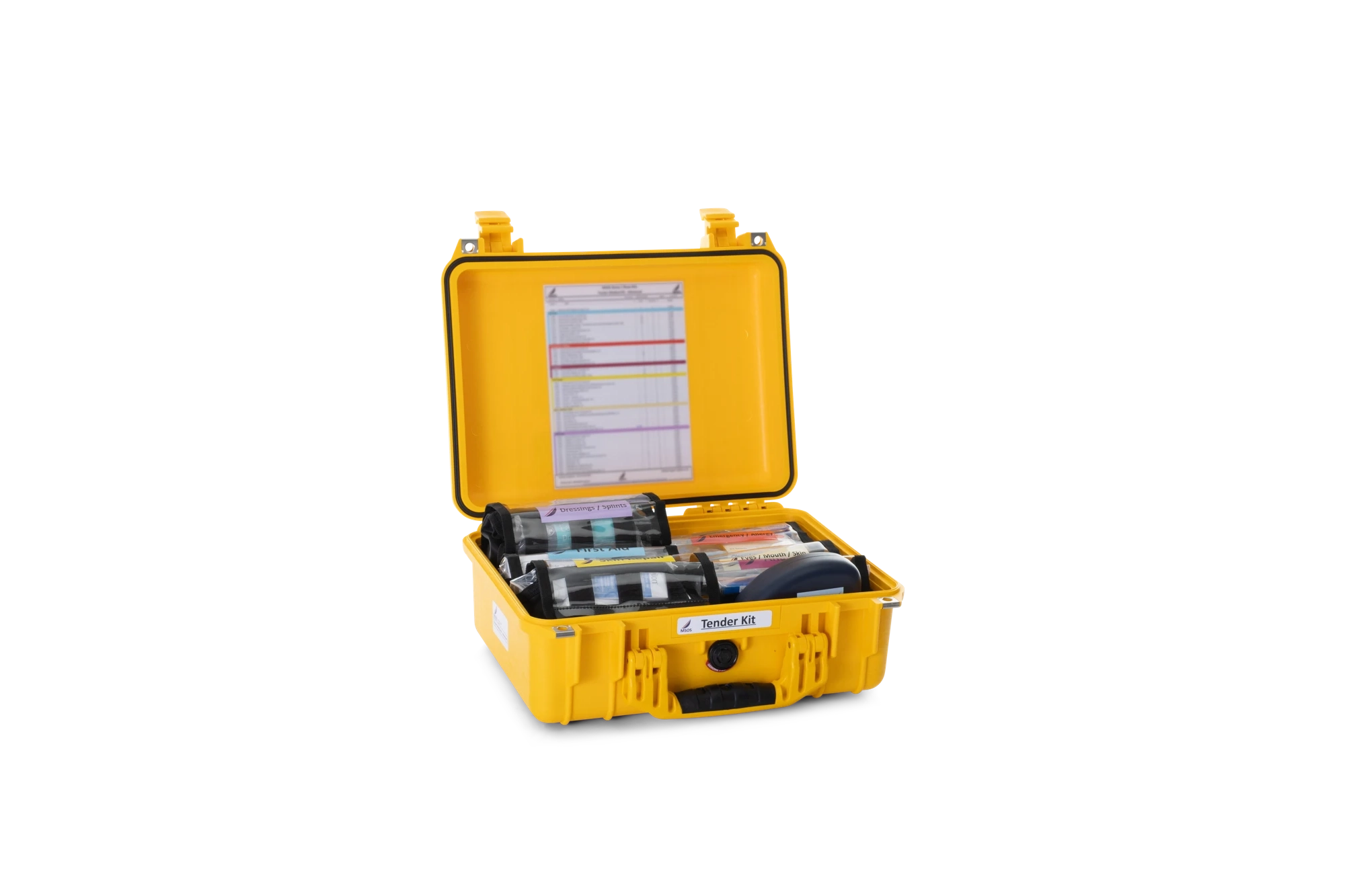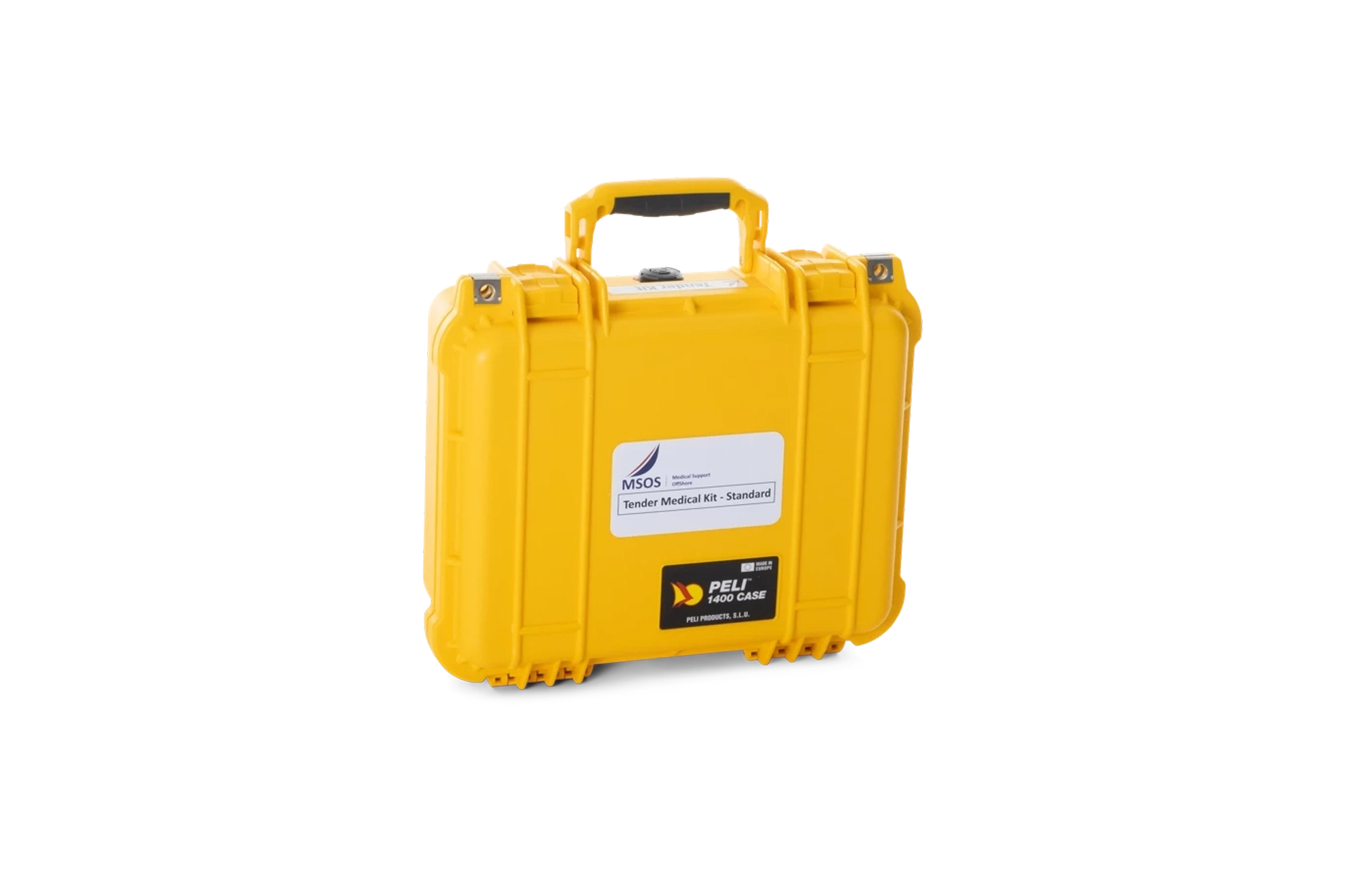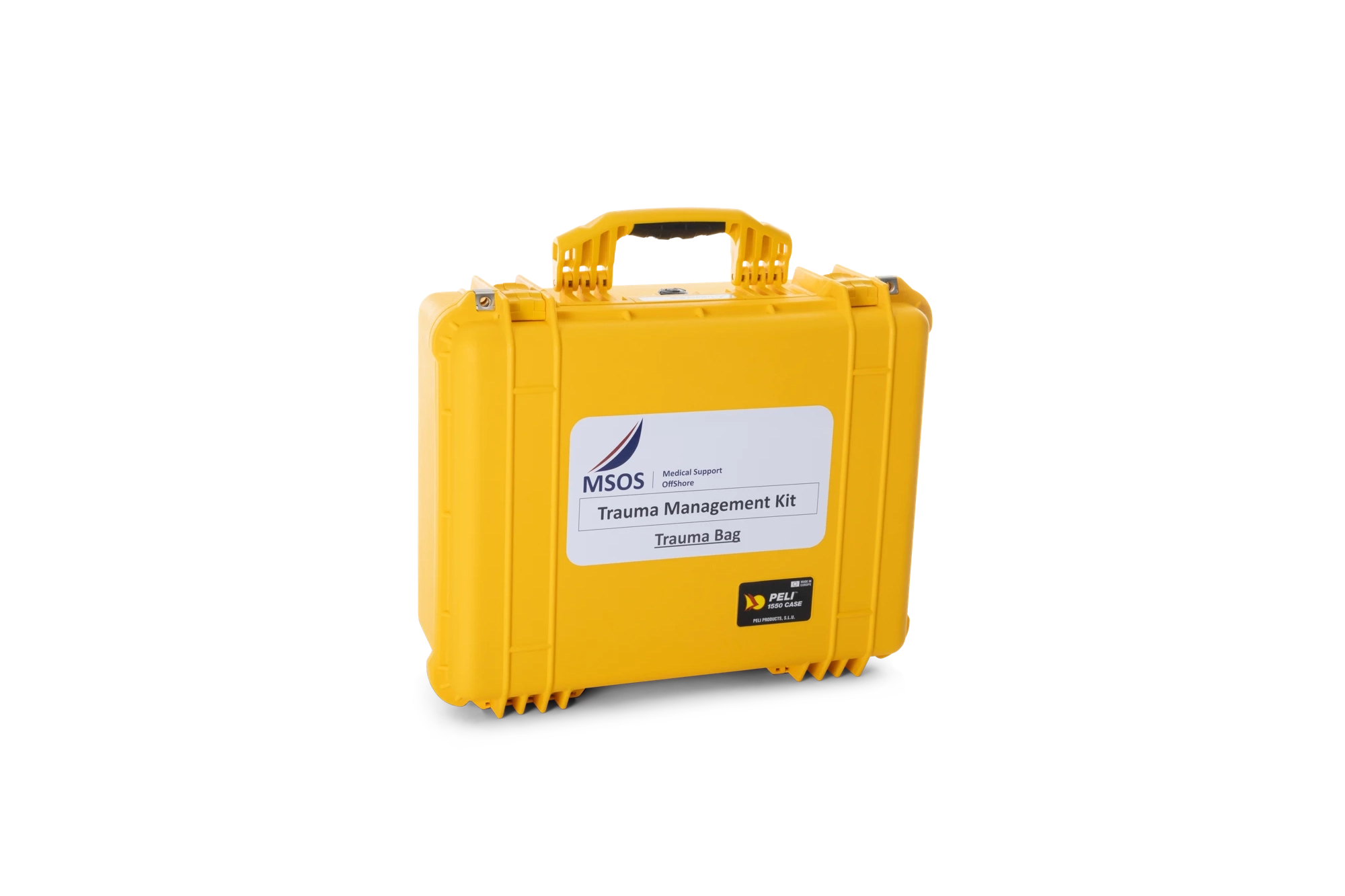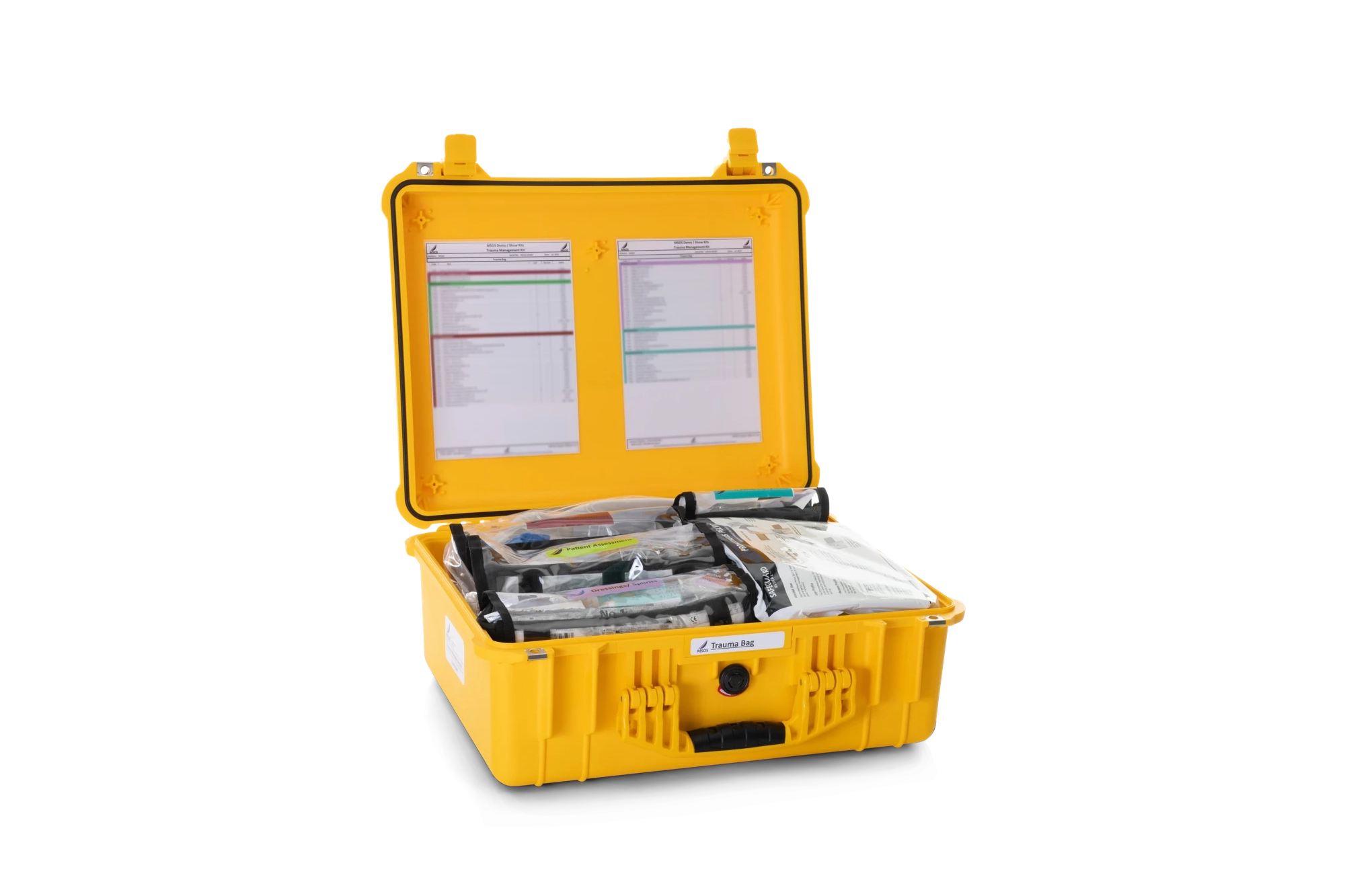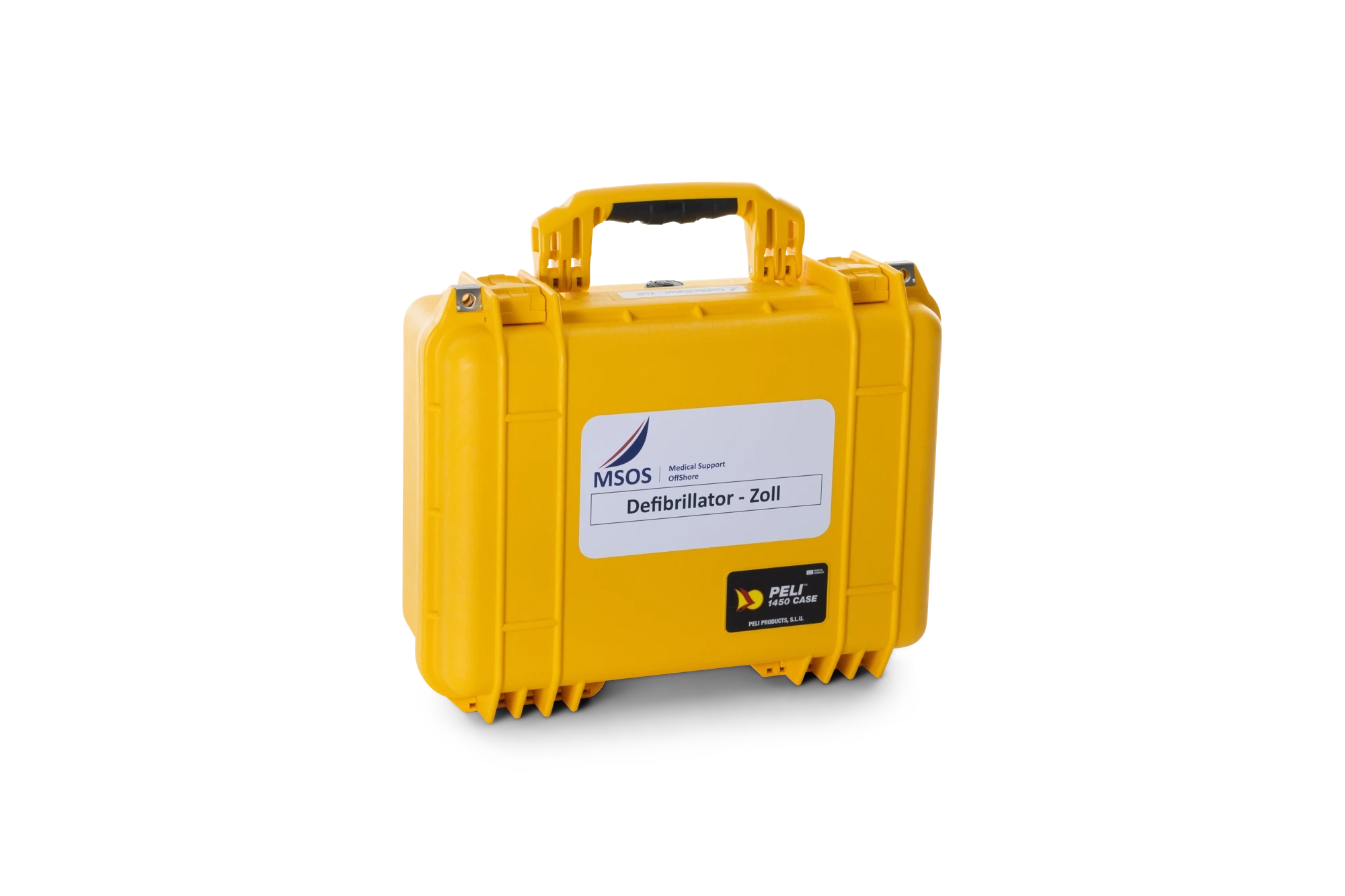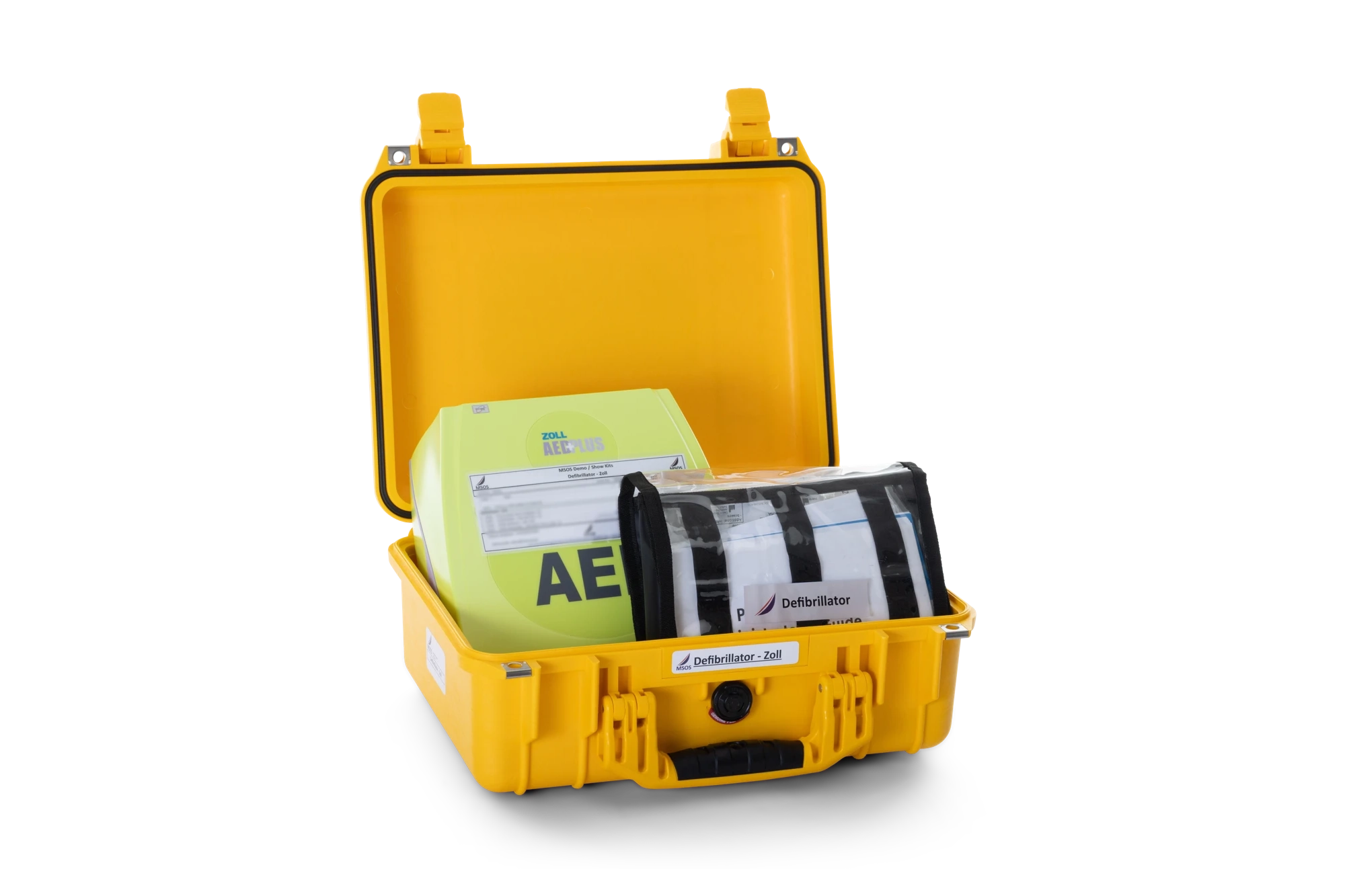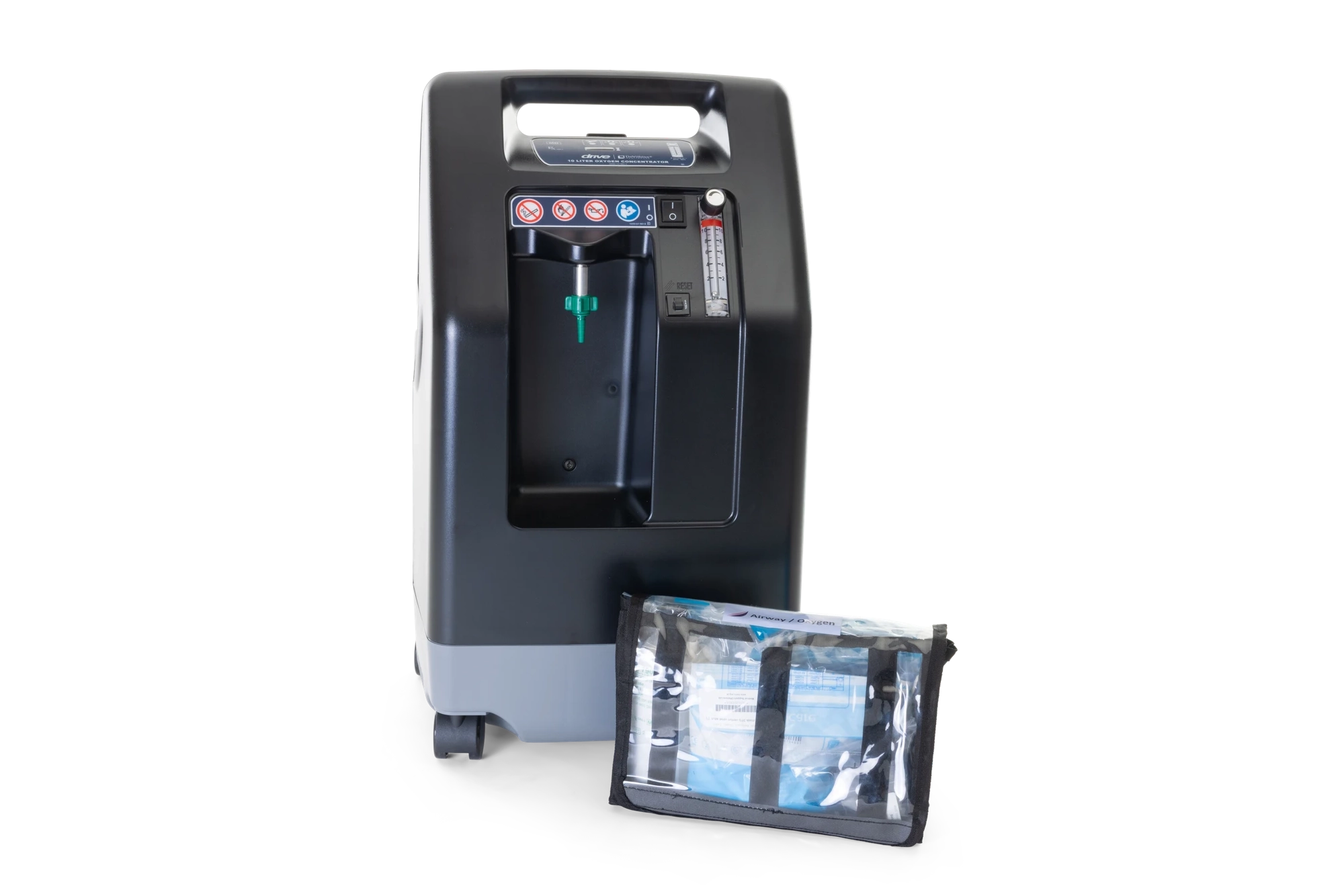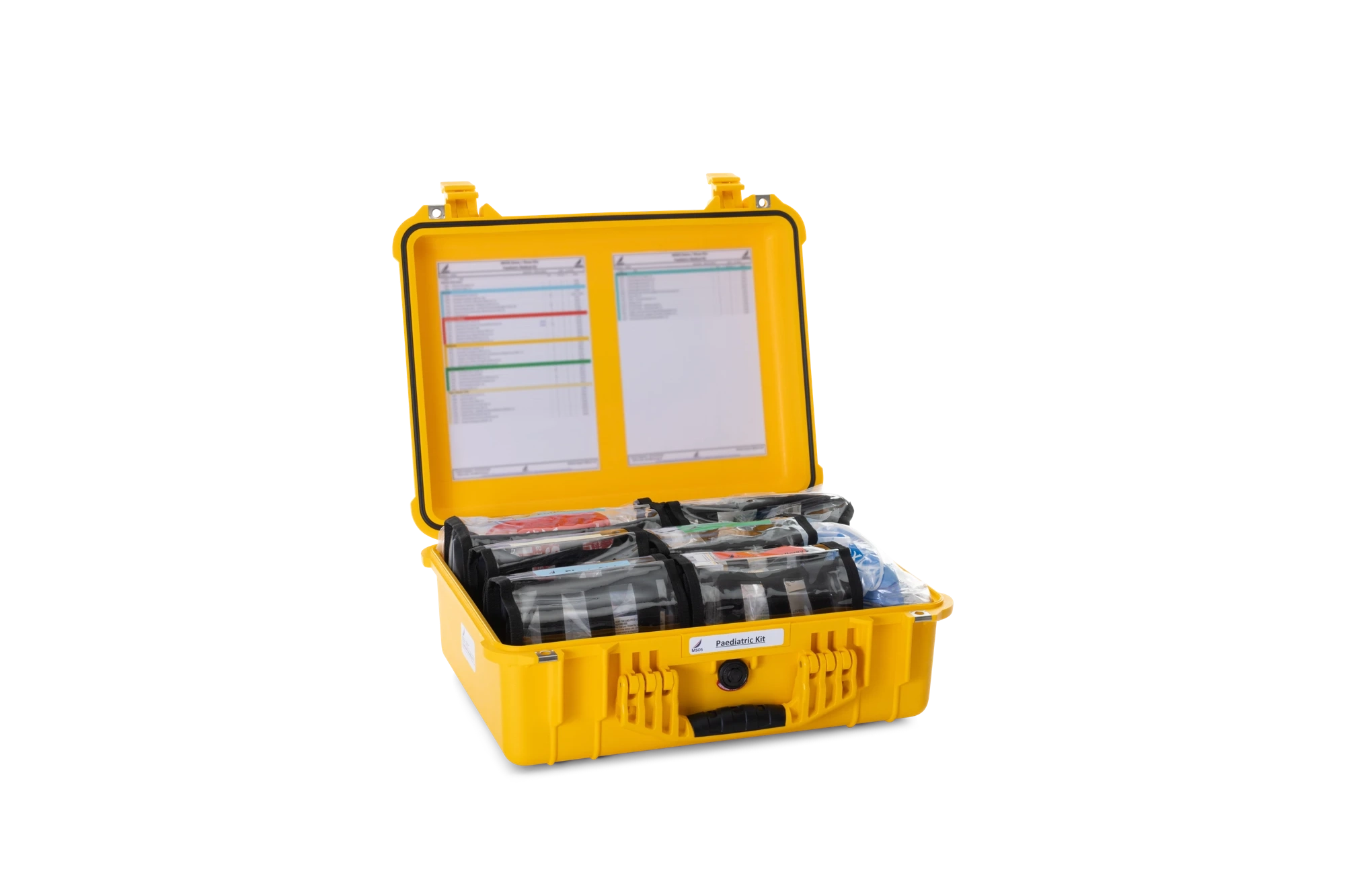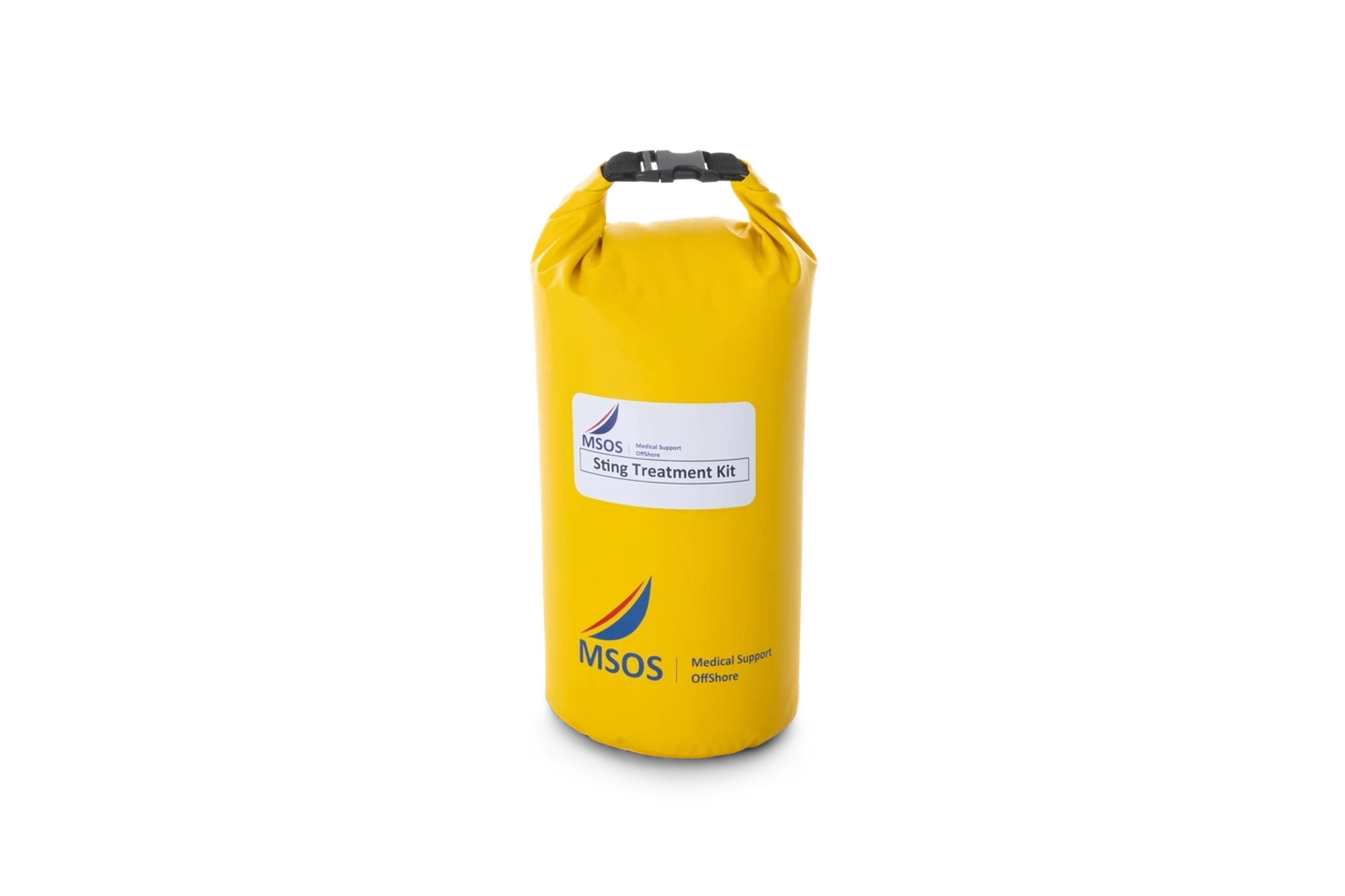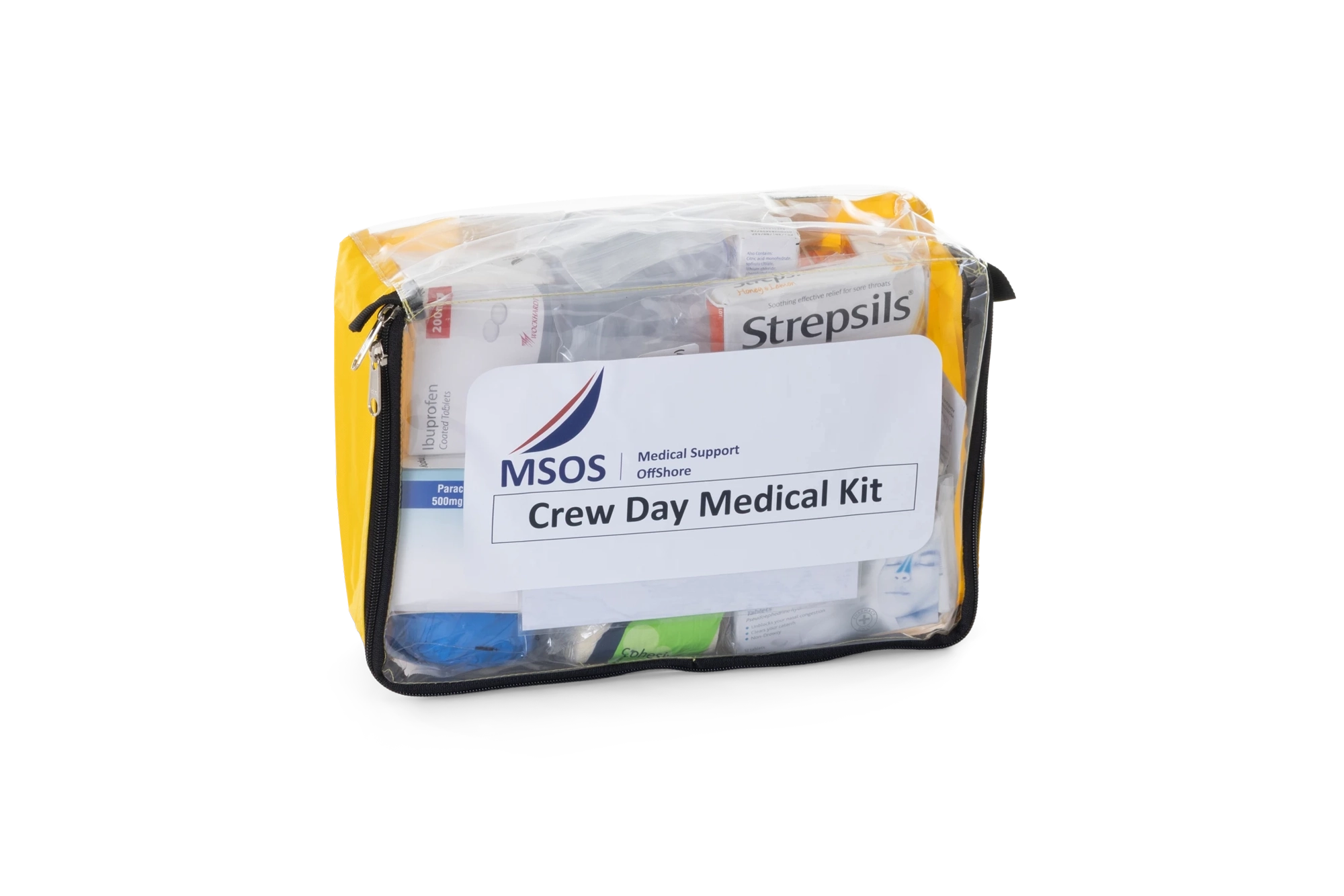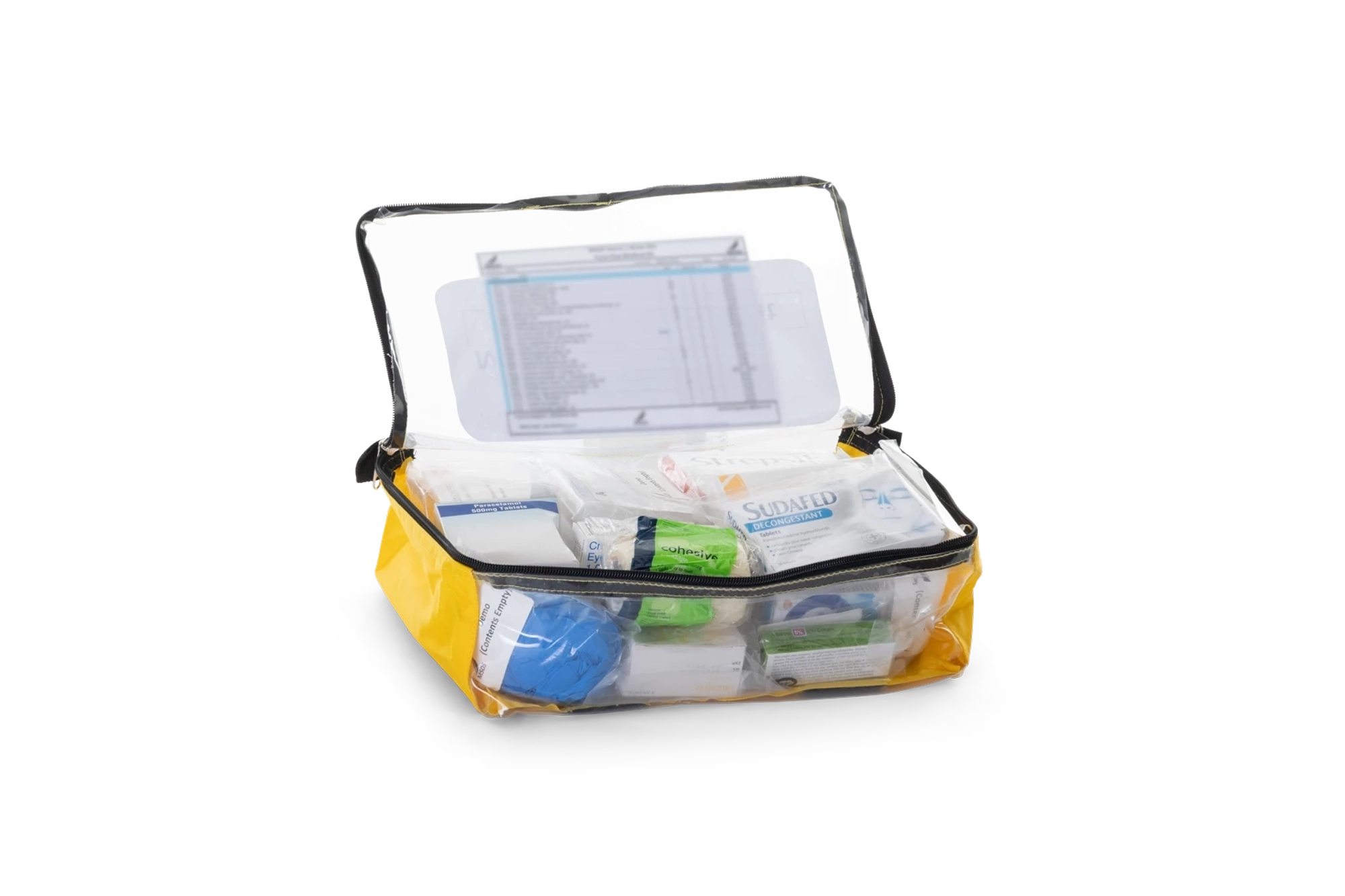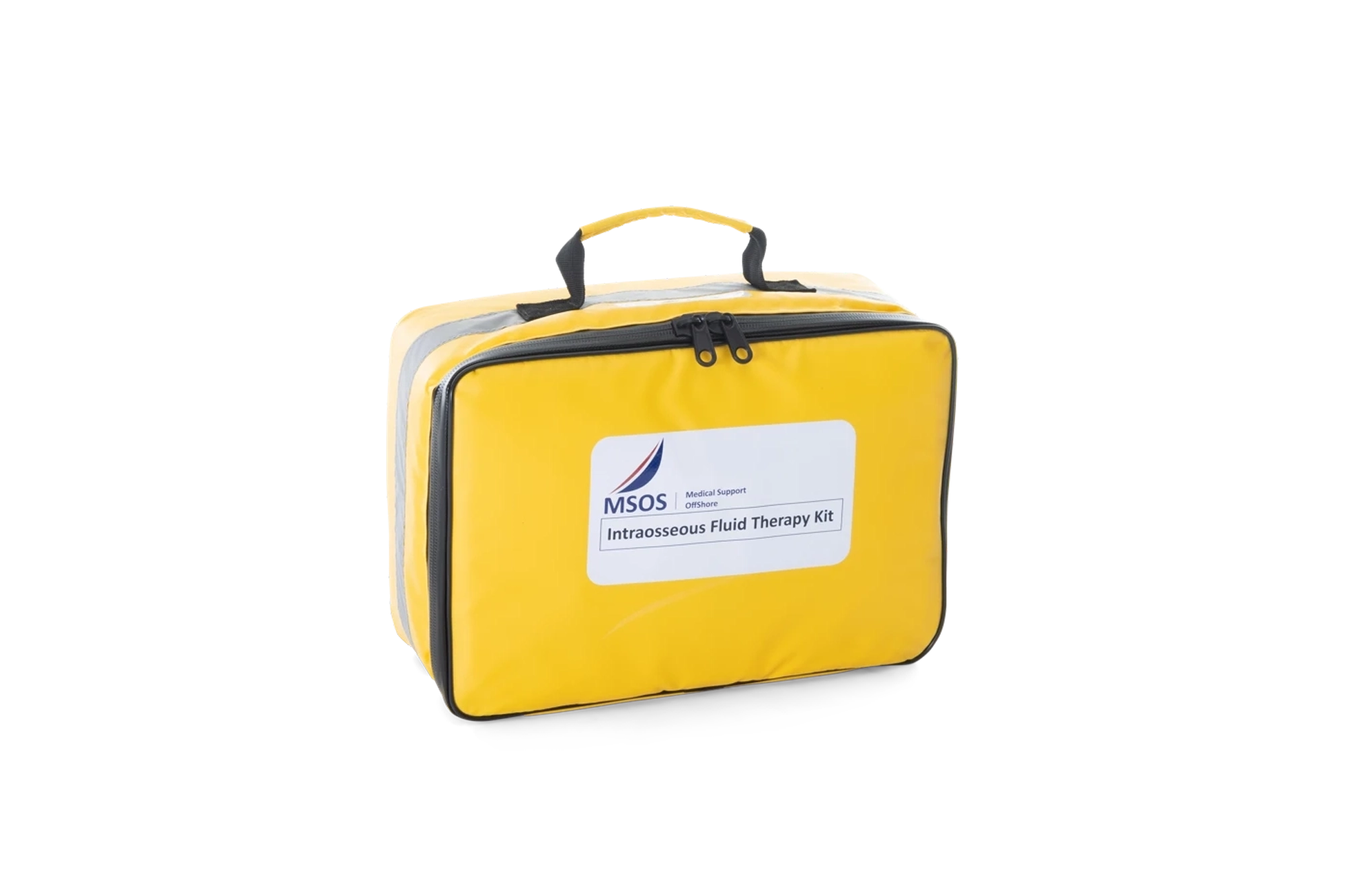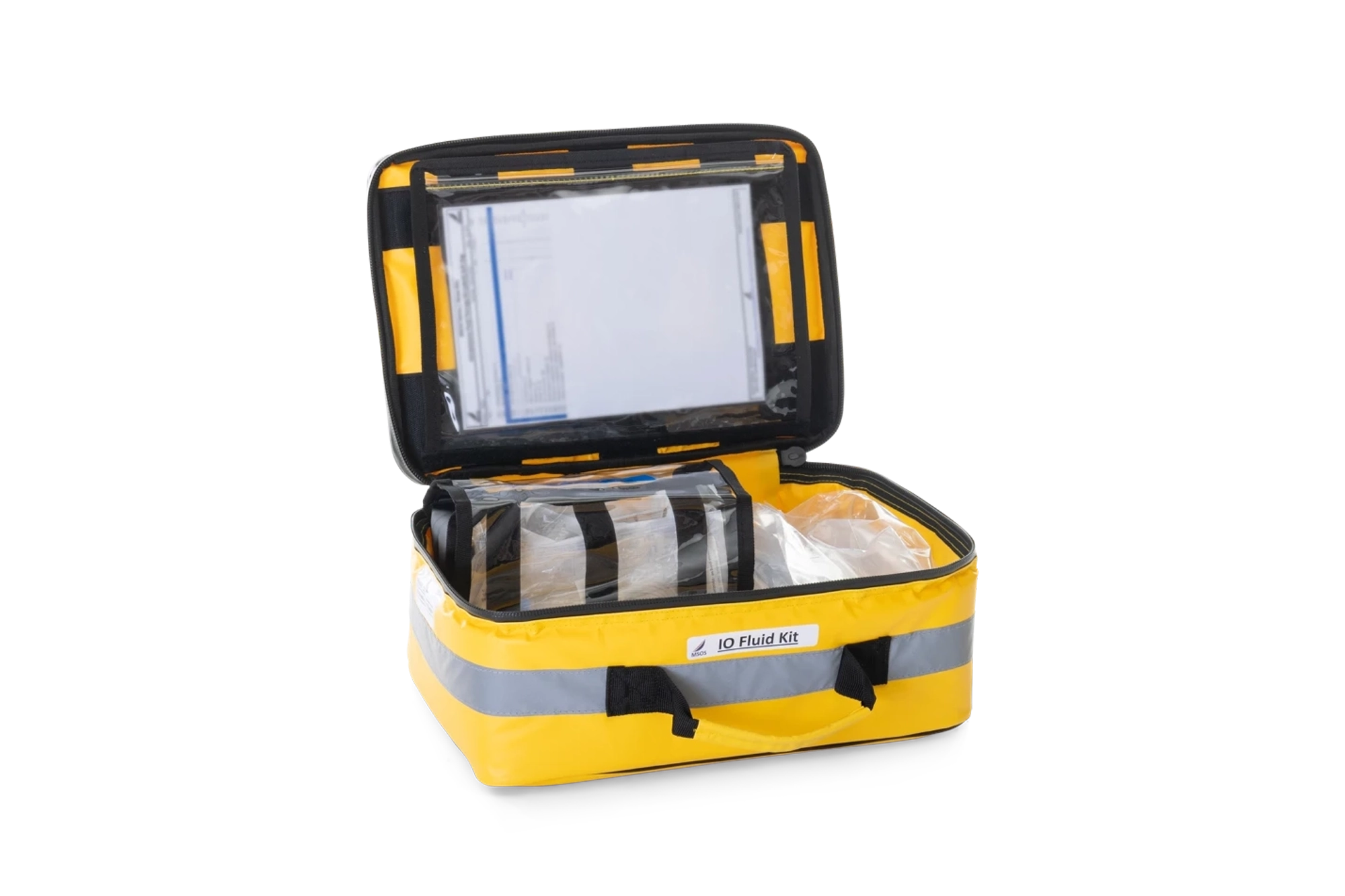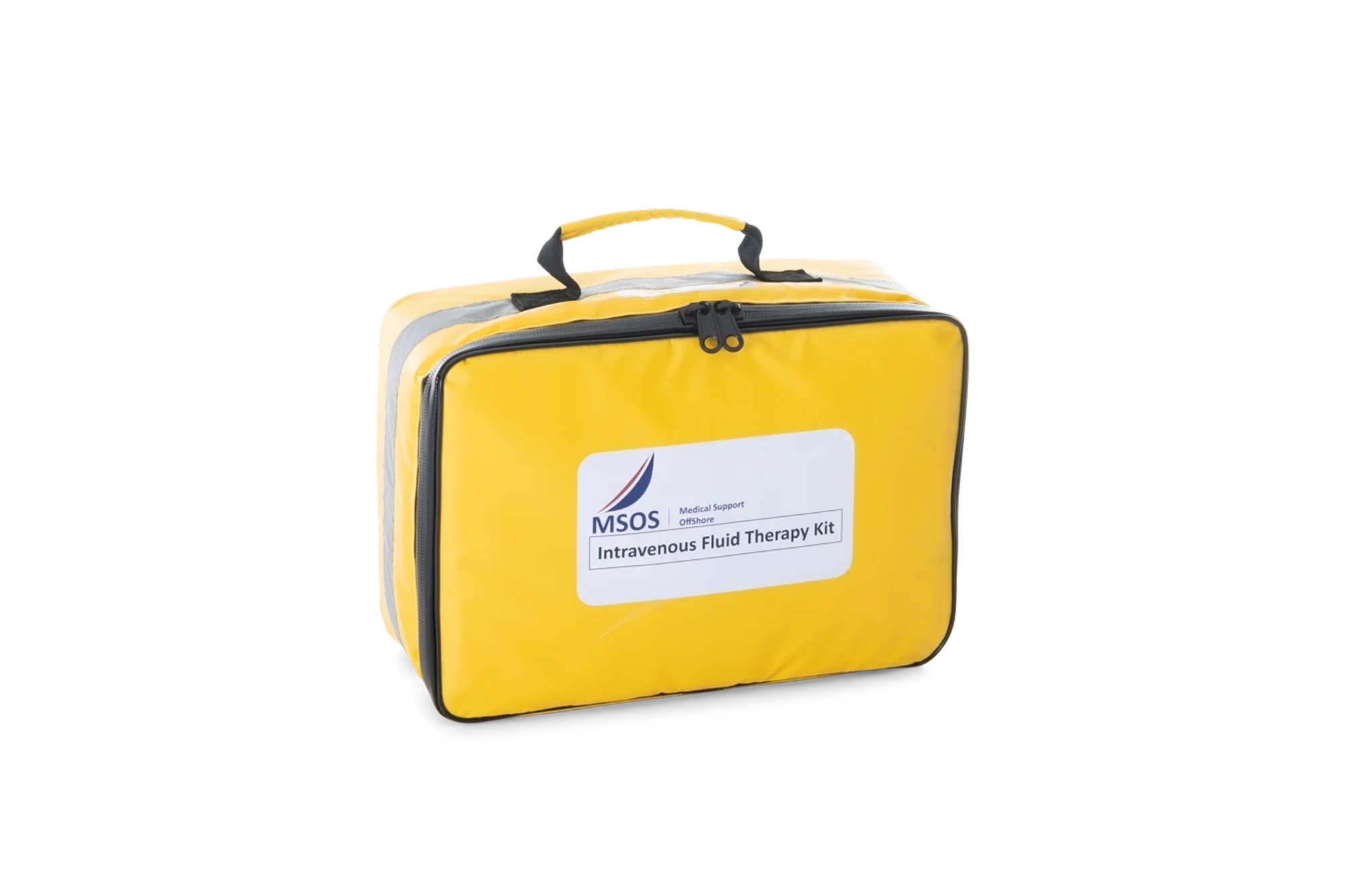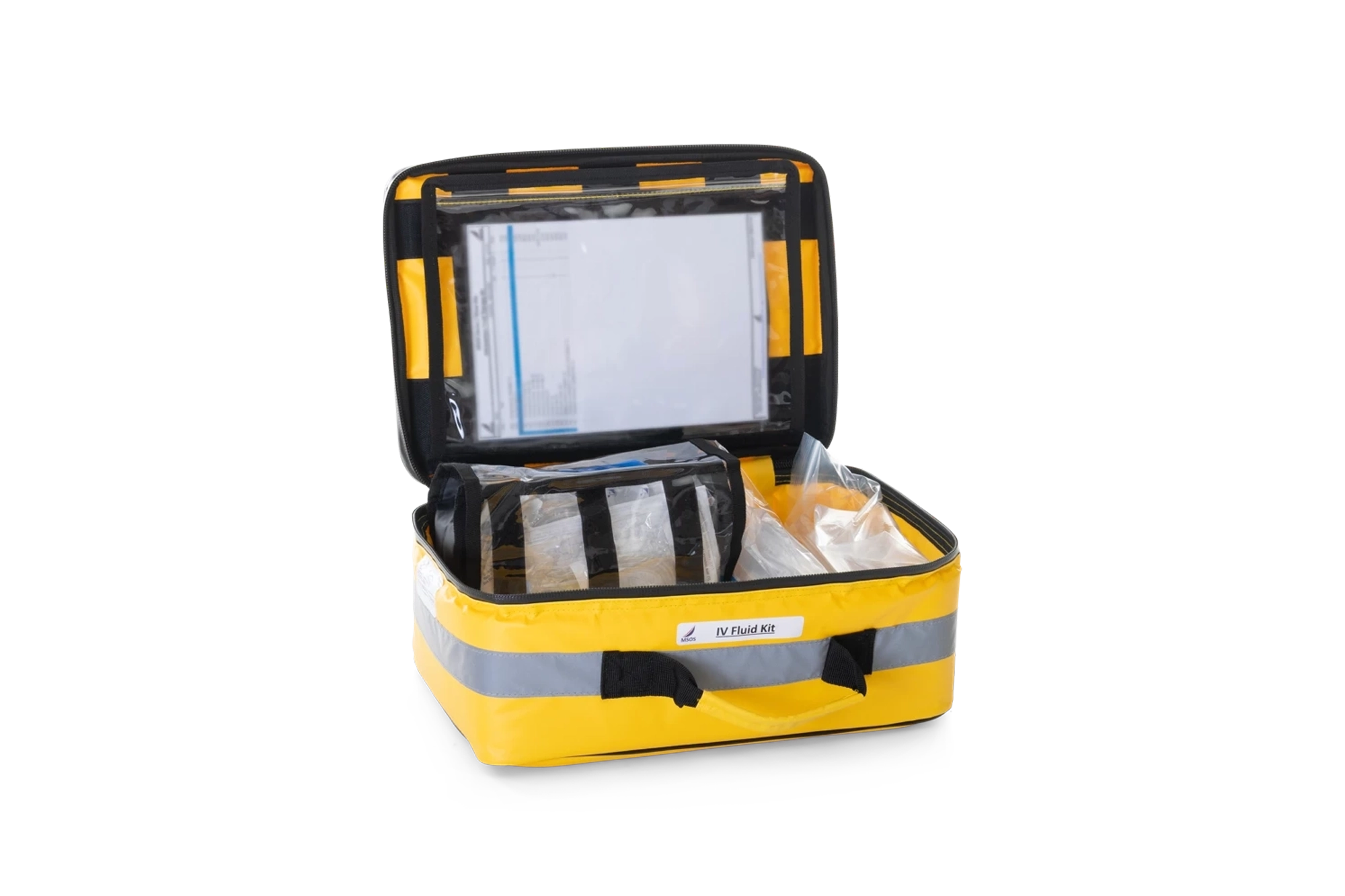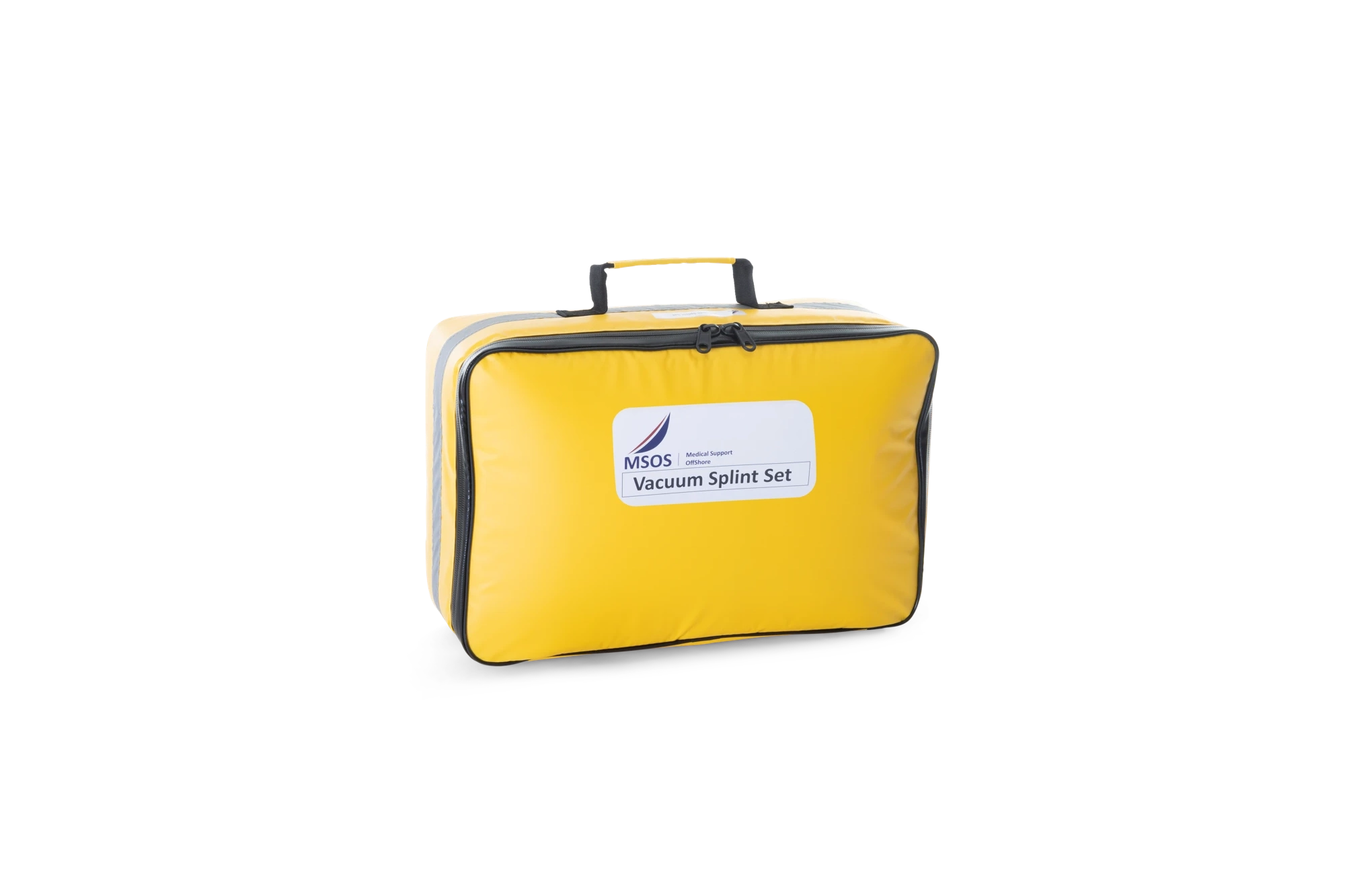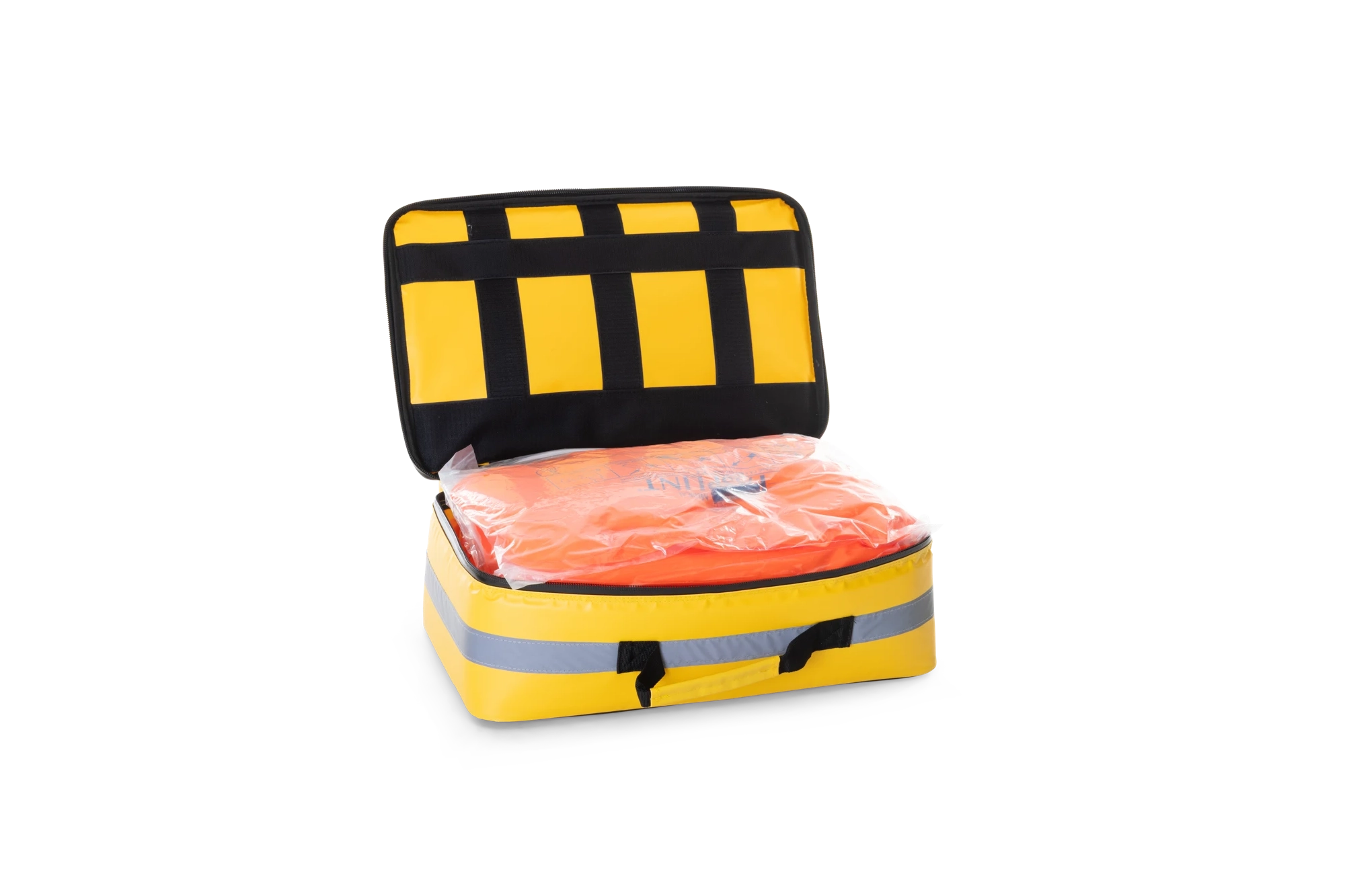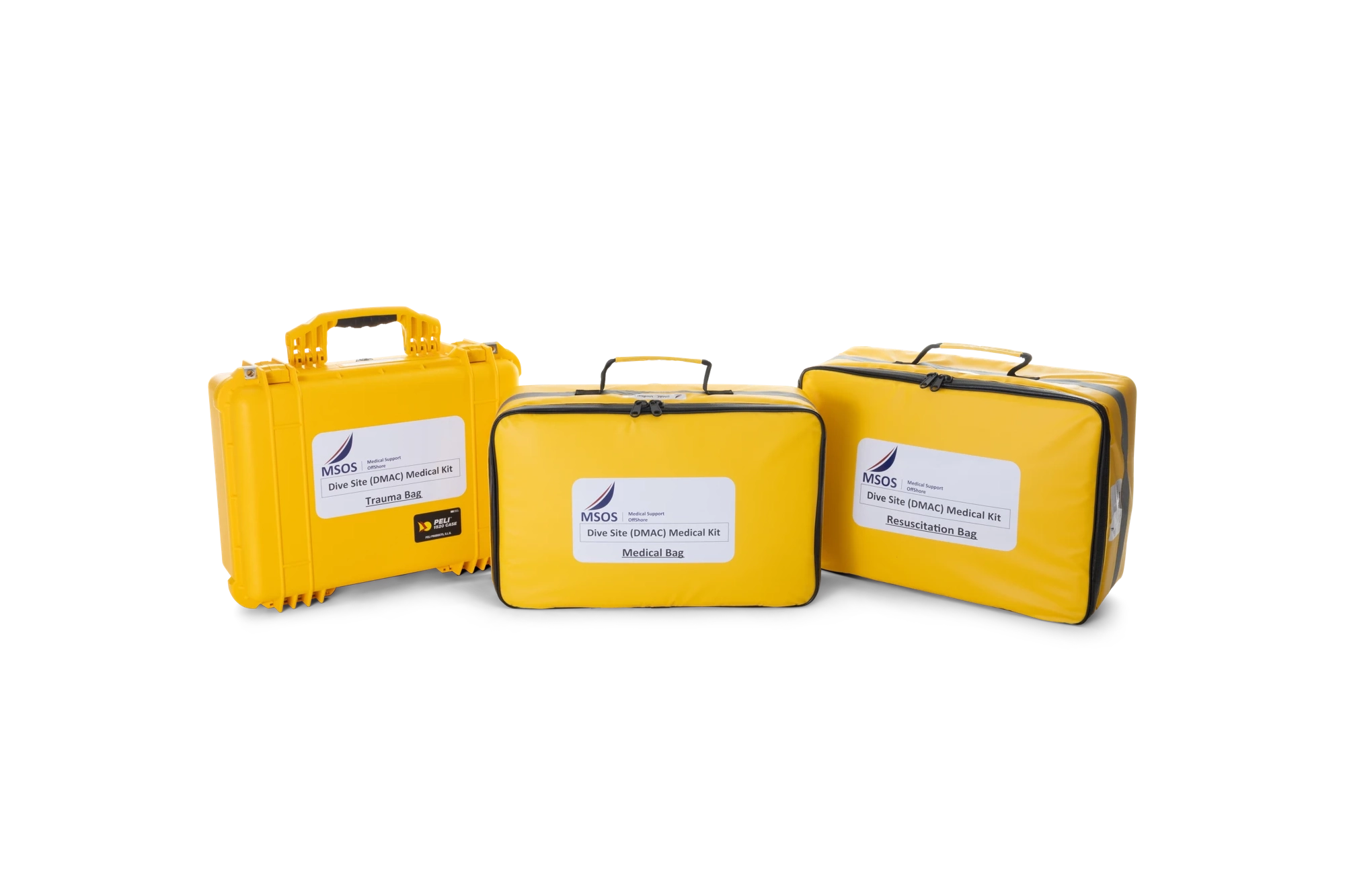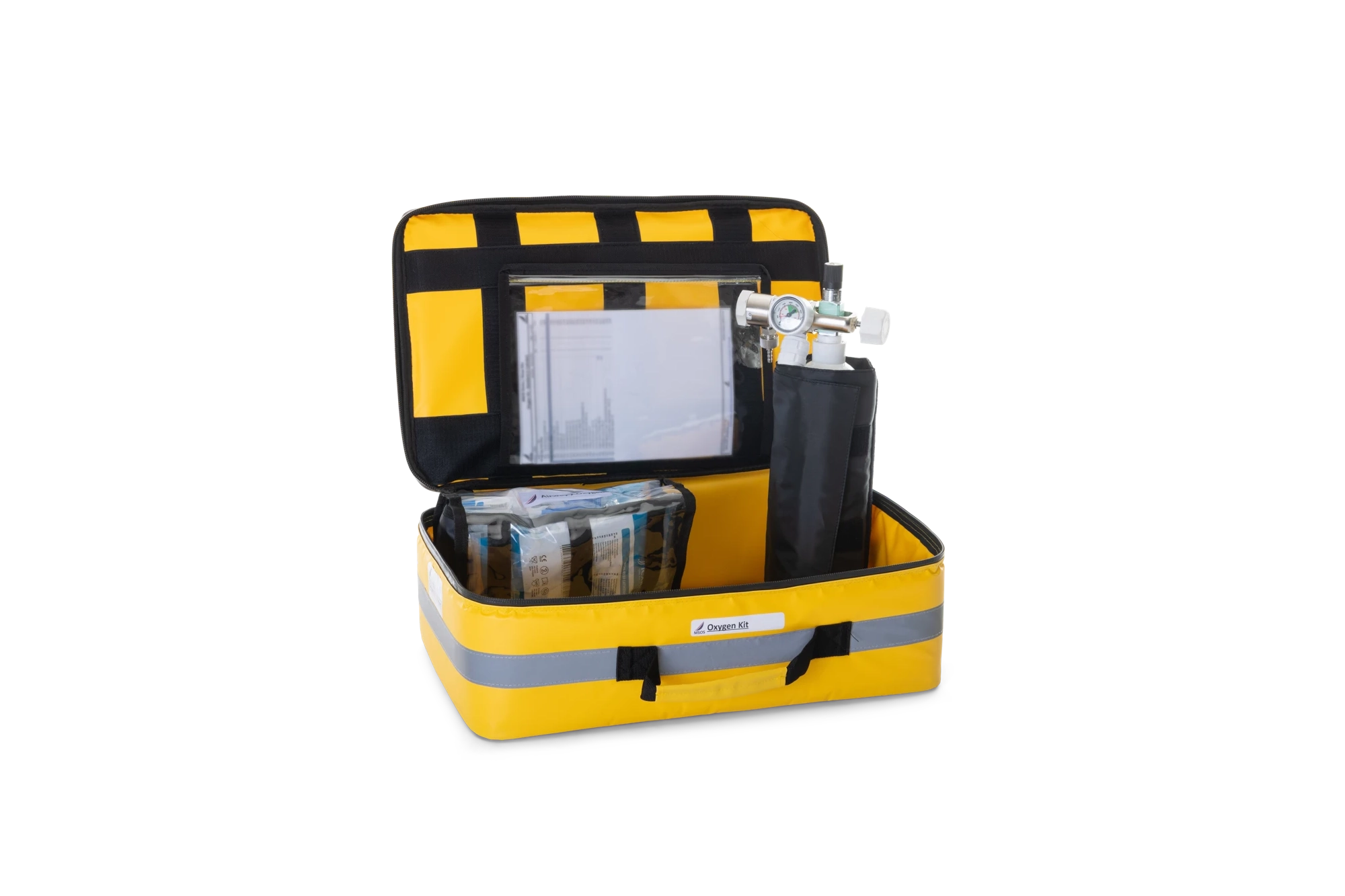
Oxygen Kits
Oxygen kits are essential for providing oxygen therapy in medical emergencies. Available in two configurations—Standard and Dive Tender kits—these kits are designed to meet the oxygen needs of various vessel operations. They include the necessary equipment to support casualties in both stable and critical conditions.
Suitable for
The Standard Oxygen Kit is ideal for general use in non-diving situations, providing a regulated flow of oxygen for medical emergencies. The Dive Tender Kit is specifically designed for diving operations, where high-purity oxygen delivery is crucial. Both kits are essential for vessels operating in remote locations, ensuring that oxygen therapy is readily available in emergencies. Whether you're responding to a casualty on a standard vessel or a dive tender, these kits provide the flexibility to deliver appropriate oxygen therapy when needed most.
Kit Contents
- Regulator and flow control for oxygen delivery from 1 litre/minute to 15 litres/minute
- Pulse Oximeter: Measures blood oxygen saturation in real time, included in all kits
- Face Masks: A range of masks to provide varying oxygen concentrations for the patient
- Airway Adjuncts: Devices to maintain an open airway in unconscious casualties, requiring specialist training
- Oxygen Cylinders: Available with either one or two cylinders (400 litres or 800 litres)
- Storage: Supplied in either Pelicases or soft bags for ease of transport and protection
- Cylinder Lifespan: A 400-litre cylinder can last up to 2 hours at 3 litres/minute or approximately 30 minutes during resuscitation at 10-15 litres/minute
For more information
For additional details about Oxygen Kits, including which configuration is best suited to your vessel’s requirements, or to place an order, please contact MSOS. Our team will guide you in selecting the correct oxygen kit for your operations and provide support for any technical questions you may have.
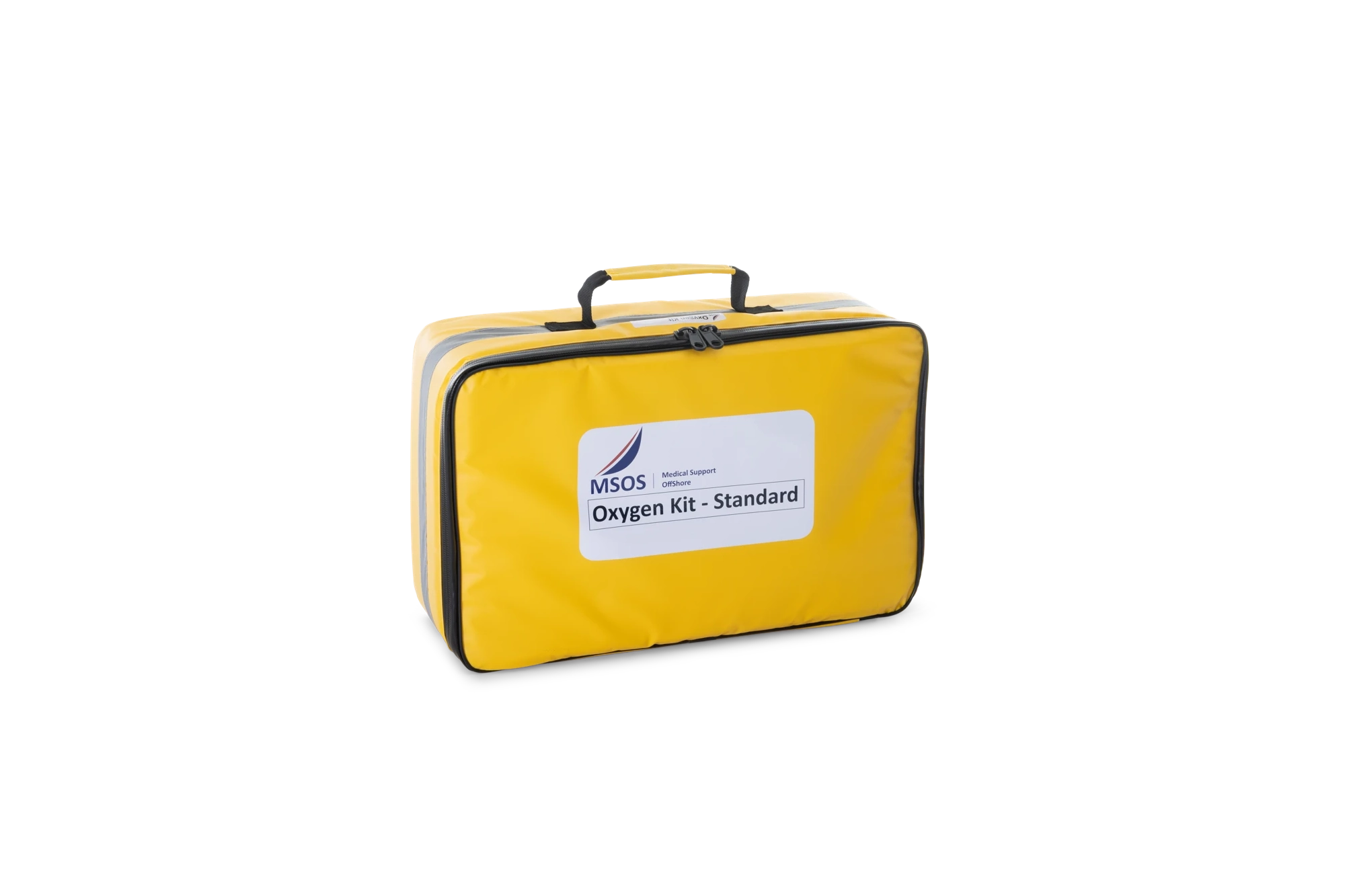
You may also be interested in...
Regulation, private and specialist medical kits
Each kit is supplied with a Skipper’s Medical Reference Guide with details of each item and guidance on it’s use and a Skippers Handbook written by Dr Spike Briggs.


